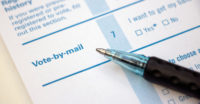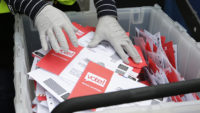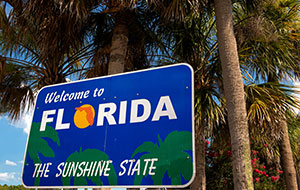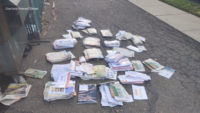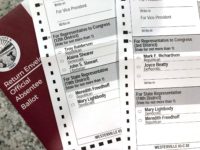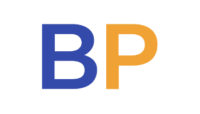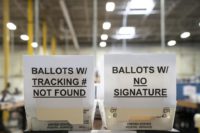Vote Fraud
Vote fraud disenfranchises Americans and poses a serious threat to both the integrity of and confidence in our electoral system. Opponents of measures to prevent vote fraud contend that its occurrence is either nonexistent or so rare as to be insignificant.
Vote fraud is insidious, committed quietly. And once it’s committed, it cannot be undone. Vote fraud contaminates the pool of votes, and if sufficiently extensive, will affect the outcome of an election. As elections determine who exercises political power, there is a motivation among some bad actors to cheat.
Vote fraud is rarely prosecuted for two main reasons. First, it is virtually impossible to identify the fraud before the damage is done as it is primarily committed through absentee and mail-in balloting; second, prosecuting the crime is expensive and is usually a low priority of prosecutors and local law enforcement more concerned with public safety. However, vote fraud is a crime that strikes at the center of our republic.
The principal weakness in our electoral system that fosters vote fraud is inaccurate voter registration rolls. The federal requirement that counties maintain clean, accurate voter rolls has been ignored over the years and actively resisted under the Obama Department of Justice.
Voter rolls should contain only the names of eligible residents of a jurisdiction, but in far too many counties, voter rolls bulge with the names of the dead, those who have moved away, non-citizens, fictional names and voters registered in more than one place.
A Pew Center on the States study in 2012 revealed that:
- Approximately 24 million—one of every eight—voter registrations in the United States were no longer valid or were significantly inaccurate.
- More than 1.8 million deceased individuals were listed as voters.
- Approximately 2.75 million people had registrations in more than one state.
In nearly 200 counties around the nation, more people are registered to vote than the counties’ population of eligible citizens. Examples abound of non-citizens and convicted felons registered to vote. In Philadelphia, an ACRU lawsuit in 2016 revealed thousands of ineligible people on the voter rolls. A sampling of counties in Virginia also found hundreds of illegal registrations, according to a 2016 study by the Public Interest Legal Foundation.
In-person vote fraud, while far more rare than absentee voting, does happen, as shown by the video sting operations of Project Veritas, in which an impersonator at a polling place in the District of Columbia claimed to be then-Attorney General Eric H. Holder, Jr. and easily obtained a ballot. In other Project Veritas videos political operatives openly discussed how to commit vote fraud in Wisconsin and other states.
The institutional Left has focused on preventing common-sense laws to require voters to prove they are who they claim they are, making the ridiculous and unprovable claim that photo ID laws discriminate against racial minorities and the poor. But, vote fraud is accommodated by other means such as extended voting periods and relaxed standards for acquiring absentee or mail-in ballots and not requiring proof of citizenship when registering to vote.
Several reasonable actions should be adopted to guard against vote fraud:
- enforce federal voter roll maintenance laws;
- require photo ID to vote in person;
- require voter ID and signature verification for absentee ballots;
- limit early voting to no more than a week prior to an election;
- require proof of U.S. citizenship;
- encourage more states to participate in cooperative efforts to identify voters registered in more than one state.
Voting is a privilege of citizenship and only legal votes should be counted. The only way to stop vote fraud is to prevent it!
ACRU Commentary
California mail ballots: tossing them from buildings would be just as secure
The number of registered voters is fluid. Voters move, they pass away, and in California, people can register to vote when applying for a driver’s license even if they are not citizens. Those residing in institutional settings are a revolving door of voters. Therefore, Governor Newsom’s directive to send a ballot to every “registered voter” is the opposite of vote integrity. The state’s GOP is suing to stop this travesty. We wish them the best in nipping this potential fraud in the bud.
Michigan math: Detroit has 30K more registered voters than eligible voters
A few weeks ago, ACRU named MI Governor Whitmer “Crisis Tyrant of the Week.” We could add “Vote Fraud Promoter of the Year” to her credentials. Whitmer is sending absentee ballot request forms to both legal MI voters AND 30,000 ineligible voters still on voting rolls in Detroit alone. The state has records of who moved and who died. It would be an easy place to start protecting real voters casting legal votes. Whitmer, so far, is a “no” on integrity measures.
ACRU’s von Spakovsky: Texas judge appoints himself pretender king of absentee ballot island
ACRU Senior Fellow Hans von Spakovksy with Zack Smith writing for the Heritage Foundation notes the U.S. Supreme Court determined Americans do not have a right to vote by absentee ballot through the mail. But never mind all that, says Texas Judge Fred Biery. Judge Biery is widely known for his bias against religious freedom. Now he can also be famous for elevating his own biases against decisions made by our nation’s highest court.
ACRU’s Blackwell: COVID-19 and international best practices for free, fair, and safe elections
This pandemic may seem as though it's changed everything, but it has not changed the rules of our constitutional republic. Let's keep it that way.
Adams & von Spakovsky: America’s hidden voting epidemic? Mail ballot failures
A new report has revealed how vulnerable voting by mail can be. It should alarm all who are pushing for all-mail elections: Based on federal data from the U.S. Election Assistance Commission, millions of mail ballots were never counted as completed votes.
ACRU lawsuit still making a difference in Broward County
ACRU sued Broward County Election Supervisor Brenda Snipes in 2016 for not maintaining voter rolls, thus opening the door for fraud. She lost her job, and pro-vote integrity Pete Antonacci was appointed by then-Gov. Rick Scott. Florida’s upcoming primary is March 17th, and all (Irish and otherwise) eyes are on Broward. So far, it seems Antonacci has done all the right things to secure the county’s votes in anticipation of the national scrutiny that will be on Broward on November 3.
News
Are organized vote fraudsters now taking interstate road trips?
“Michael Lewis” has been charged for illegally voting in New Hampshire in 2016. He was caught after being arrested afterward without a license and giving a Florida address. Mr. Lewis also voted in Florida and Georgia in 2016. His actual residence is a two bedroom home with 12 (alleged) residents in Georgia. He picked NH—a state where he could walk up and vote with no ID. He’s not the only one. Hawk-eyed NH anti-fraud activist Ed Naile may have poked the tip of a fraud iceberg with a sharp stick.
Liberal governor’s unsolicited ballot fiat creates havoc for voters
New Jersey Democrat Governor Phil Murphy used COVID as an excuse to mail ballots to every address in the state, whether the addressee is alive or dead, or relocated. NJ election officials, overwhelmed by this unnecessary political maneuver, can’t get it right. In Bergen County, officials sent out nearly 7,000 incorrect ballots to 28,000 voters. The officials who made this mistake claim there will be no confusing results. Right.
Postal worker thinks voters live in a nearby trash bin
Also in the Garden State, Mr. Howard Dinger was throwing out trash last week when five bins of mail—including absentee ballots—caught his eye. A postal worker has been arrested on felony charges for dumping the mail instead of delivering it. If not for Mr. Dinger’s eagle eye and willingness to do his civic duty, 100 West Orange residents would be wondering where their ballots went. Vote In Person.
Capital-area county sends out broken ballots
In the county that contains Ohio’s seat of government, 21% of absentee ballots sent to voters were incorrect. Some had the wrong congressional race and some had the wrong voting precincts. Vote fraud is real, and so is election office incompetence. Both result in false results. Like similar cases in Michigan and New York, officials are sending new ballots to further confuse people. Don’t take chances. Go to the polls. Be a VIP--Vote In Person.
Resource for tracking election updates
Although it’s difficult to find any nonpartisan sources for election information, Ballotopedia’s newsletter does a good job providing updates on regulations and date requirements for ballot applications and voting, and other points of election law. Signing up for its 2020 Election Help Desk Newsletter is easy, and contains factual legal, and procedural updates.
Is the liberal demand for unsolicited ballots planned chaos?
EIB has been documenting the confusion inherent in the liberal push for mail-only balloting—including in this edition. The evidence is clear. Our colleague Chuck DeVore of the Texas Public Policy Foundation succinctly notes, “the rush to mail-in balloting will overwhelm the local elections officials who do the job of counting the vote.” We suggest this was exactly what the left planned.




